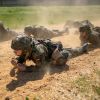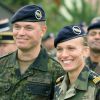70 years of the Bundeswehr: From formation to the turning point
From the Cold War to the current threat situation: The Bundeswehr looks back on seven decades of peacekeeping, loyalty to the alliance – and ever new challenges.
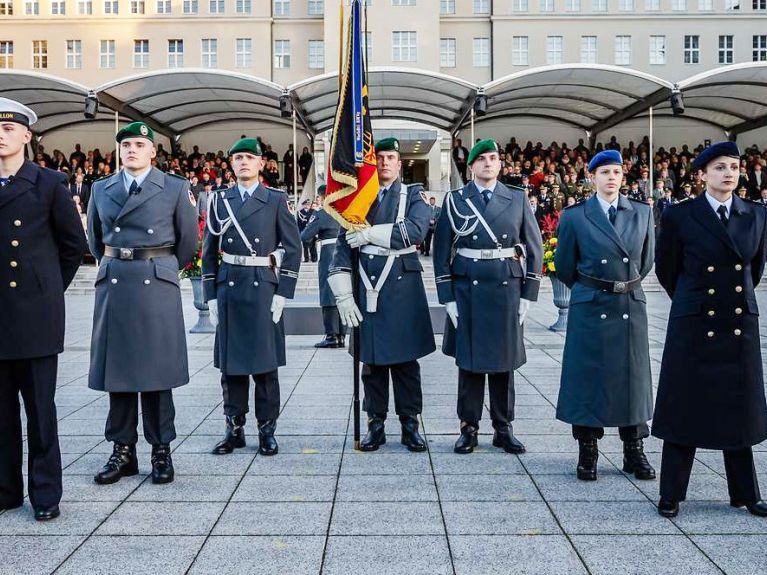
It marked a historic new beginning when the first volunteers received their commissioning certificates in Andernach on 12 November 1955. Ten years after the end of the Second World War, the young Federal Republic of Germany created an armed force that was deliberately designed to have nothing in common with the former Wehrmacht. Its mandate, its leadership and its legitimacy were democratically enshrined from the outset. The guiding principle of “leadership development and civic education” understood soldiers as citizens in uniform – bound by the Basic Law, subject to parliamentary control and institutionalised within society.
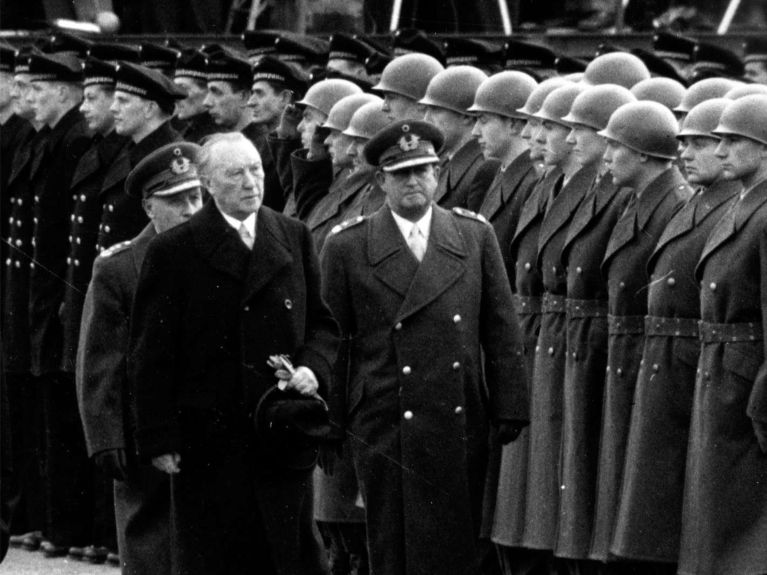
Since its accession to NATO in May 1955, Germany was firmly integrated into the Western alliance. During the Cold War, the Bundeswehr followed the “principle of deterrence”. Conscripts served in an army whose total strength reached almost half a million soldiers in the 1980s. It was part of a strategic balance between East and West – ready for defence, focused on maintaining peace.
The Bundeswehr after German reunification
The armed force transformed with German reunification in 1990: Parts of the National People’s Army of the former German Democratic Republic (GDR) were integrated into the Bundeswehr, structures were merged and personnel reduced. The parliamentary army remained, but its internal realignment was dramatic: A Cold War frontline army became an all-German army in a united Europe.
Germany simultaneously assumed responsibility in international United Nations (UN) missions. From the mid-1990s onwards, German soldiers took part in peacekeeping missions – initially in Bosnia and Herzegovina, subsequently in Kosovo. The Bundeswehr has been part of the NATO-led Kosovo Force (KFOR) since 1999. The Federal Constitutional Court clarified in 1994 that such deployments are permissible within the framework of collective security systems, insofar as the Bundestag approves.
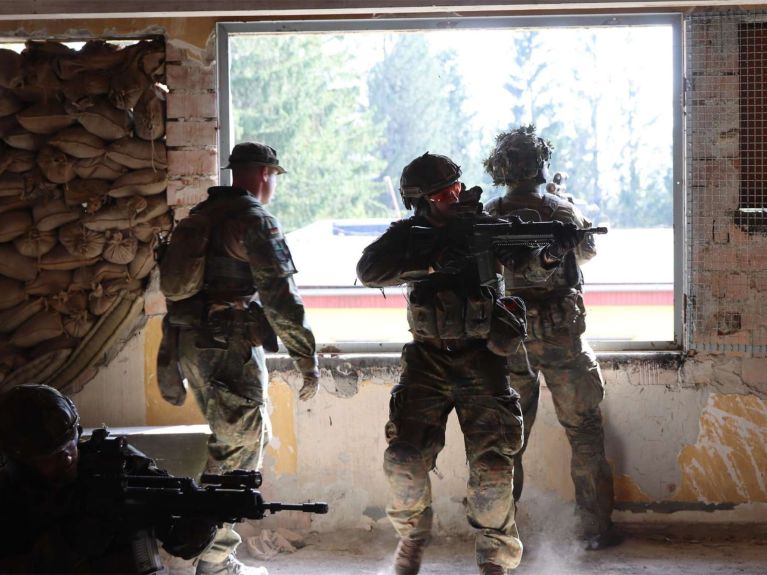
The international deployments of the 2000s shaped a new generation of soldiers. The Bundeswehr served in Afghanistan from 2001 to 2021, initially in the context of the ISAF mission, subsequently with “Resolute Support”. More than 150,000 Germans were deployed there, 59 lost their lives. The mandate was to create a secure environment for reconstruction – a mission that stretched military and political boundaries.
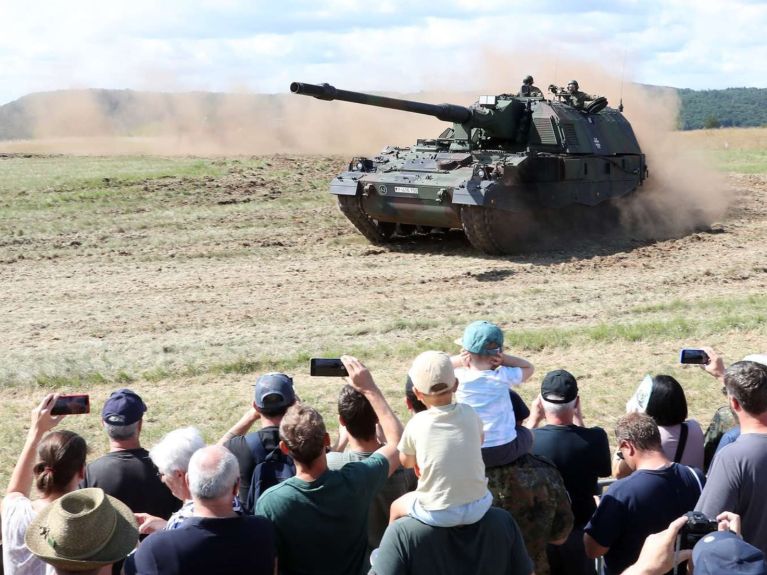
In addition to Afghanistan, the Bundeswehr was involved in numerous UN- and EU-led deployments, such as in Lebanon (UNIFIL), in Mali (MINUSMA) and off the coast of Somalia (ATALANTA). These missions turned the Bundeswehr into an internationally networked army – closely integrated within NATO, the EU and the United Nations. Its collaboration with partners was expanded, including joint command structures with the Netherlands and France and European training initiatives.
In addition to its international deployments, the Bundeswehr also provides support with domestic civil disasters – such as floods, forest fires and during the coronavirus pandemic – always based on administrative assistance regulated by constitutional law.
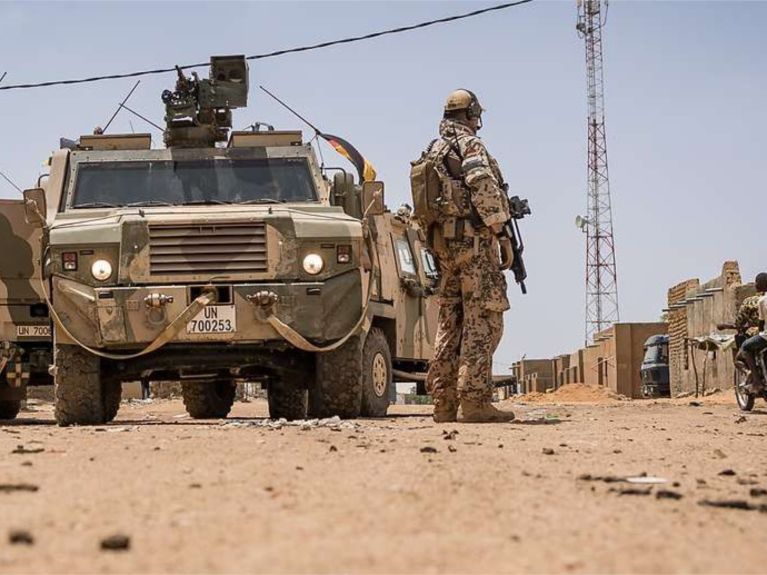
Turning point and future mission
The start of Russia’s war of aggression against Ukraine on 24 February 2022, in violation of international law, marked a “turning point”, as the then Federal Chancellor Olaf Scholz put it. Since then, the role of the Bundeswehr in national and alliance defence has become substantially more significant. The new Federal Government under Friedrich Merz, in office since May 2025, is also investing high billions in defence capabilities and armament projects – a move that is the subject of heated debate among the German public, particularly in light of the country’s tight budget. “The threat situation takes precedence over the financial situation”, Defence Minister Boris Pistorius made his position clear. The willingness of the Bundeswehr to assume increasing responsibility alongside the armies of its allies includes the permanent stationing of a German brigade in Lithuania as part of NATO’s eastern flank.
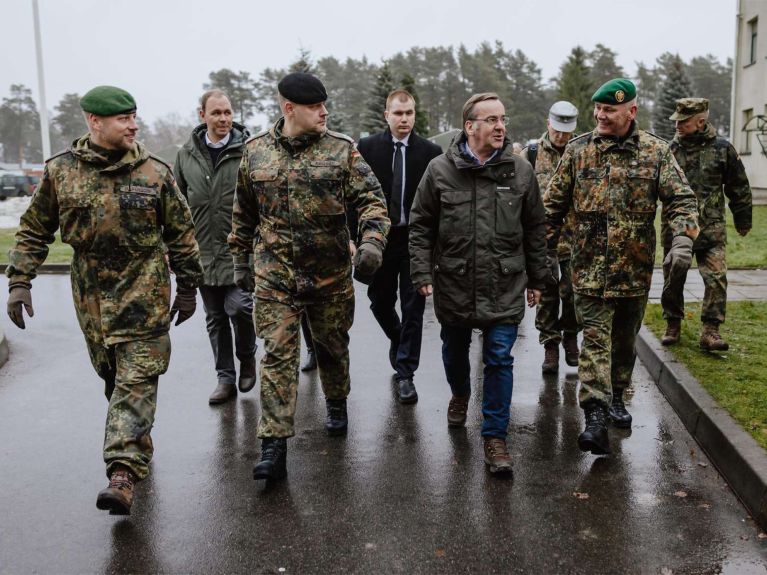
The personnel strength of the Bundeswehr is also on the agenda. Universal conscription was discontinued in 2011 once the security situation had eased – the Bundeswehr became a professional army. It now has around 181,000 active soldiers; this number is set to rise to 260,000 in the medium term, supplemented by a strong reserve force. In order to support this expansion, military service is being reintroduced in a modified form.
In the 70 years of its existence, the Bundeswehr has reinvented itself numerous times; now its importance in securing a peaceful future seems greater than ever.

